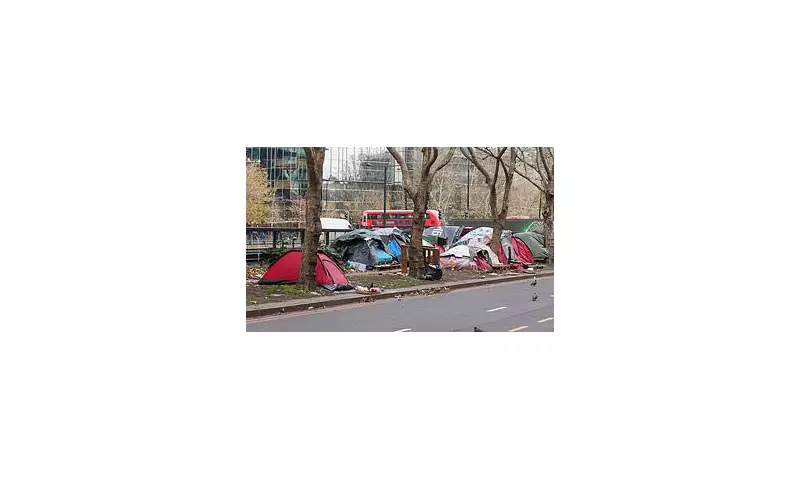
Returning to London after a year of maternity leave in the countryside, a journalist was confronted with a city that had deteriorated beyond recognition. The anonymous buzz she had romanticised was replaced by an unsettling landscape of open drug use, prostitution, and pervasive squalor.
A Morning Walk Through a Changed City
The reality of the capital's decline struck during an early morning walk through the affluent Hyde Park estate. At first, an encounter at a bus stop appeared to be a domestic dispute. A woman in a tightly belted coat was screaming at an elderly man who cowered before her, before she began to beat him with the back of her hand.
It soon became clear this was no ordinary argument. The man, terrified, reached for his wallet. The woman's bare, scuffed legs and smudged make-up on a pock-marked face covered in sores revealed the truth: she was a prostitute, and he was her client. After catching the observer's eye, the man gave a leering thumbs-up.
Seconds later, the scene repeated itself. Another young woman, seemingly on her way to work in high heels, lingered on a street corner. A hooded man on an L-plated moped arrived promptly, handing over a small plastic bag of drugs. This was not a commute; it was a drug transaction.
The Unavoidable Signs of Social Collapse
This was not an isolated incident. On other occasions, the walk to work has featured people openly smoking crack cocaine. One was in full view, while another only had the shame to hide behind a bus shelter, surrounding herself with a fortress of plastic bags.
The route from Marylebone station, once a welcome relief, is now an obstacle course. Pedestrians must dodge hooded young men and masked e-bike riders barrelling along pavements, through red lights, and over pedestrian crossings. Edgware Road is now a maze of metal fencing and roadworks, dotted with closed pubs and abandoned churches.
Doorways of mysterious 'self-storage' depots are filled with piles of dirty rags and sleeping bags, with hands and feet poking out. In the shadow of Kensington Palace, the London home of the Prince and Princess of Wales, an elderly figure sleeps bolt upright on a bench under a duvet, next to a haunting little pram stuffed with old papers and plastic bags.
A Capital in Crisis: Who Would Want to Visit Now?
The journalist observes that while homelessness, drugs, and prostitution are not new to London, seeing them with fresh eyes after a year away highlights just how visible the social collapse has become. Central London itself is now one big mess of American Candy stores and vape shops, selling knock-off merchandise.
This is compounded by the incessant roadworks, the constant stink of marijuana on every street, and a palpable lack of civic pride and community cohesion. The so-called 'tent cities' have sprung up around the West End's shopping and tourist districts.
Bewildered American tourists now realise they have paid over £200 a night to stay near what appears to be a migrant hotel on a street where prostitutes collect their drugs. The journalist concludes that she feels sorry for the people who do not have the luxury, as she does, to escape back to a rural home at the end of the working day. While Mayor Sadiq Khan trumpets that London is 'open to all', the pressing question remains: who on earth would want to go there now?






